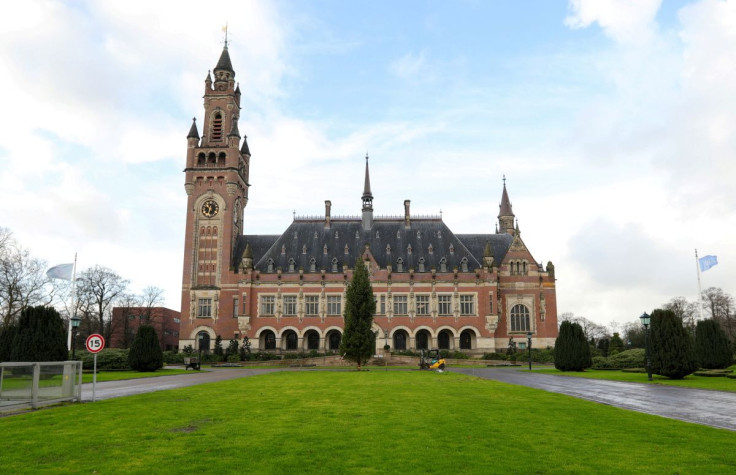Russian No Show At U.N. Court Hearings On Ukrainian War

Russia boycotted hearings at the U.N.'s highest court on Monday during which Ukraine is seeking an emergency order to halt hostilities, arguing that Moscow has falsely applied genocide law in justifying its invasion.
Hearings began at the International Court of Justice (ICJ) without legal representation for Russia.
"The fact that Russia's seats are empty speaks loudly. They are not here in this court of law: they are on a battlefield waging an aggressive war against my country," Ukrainian envoy Anton Korynevych said.
He urged Russia to "lay down your arms and put forward your evidence."
The court said it regretted Russia's non-attendance.
A spokesperson for the Russian Embassy in the Netherlands did not reply to a request for comment.
Russian President Vladimir Putin has said Russia's "special military action" is needed "to protect people who have been subjected to bullying and genocide" - meaning those whose first or only language is Russian - in eastern Ukraine.
Ukraine said on Monday Russia's claim was baseless and the alleged genocide in eastern Ukraine was "non-existent".
The case centres on the interpretation of a 1948 treaty on the prevention of genocide, signed by both countries. The treaty names the ICJ as the forum for resolving disputes between signatories.
Ukraine said Monday that Moscow was violating and abusing the genocide convention by using it as a justification for war.
"Russia must be stopped and the court has a role to play in stopping it," Korynevych told the judges as he asked for them to impose emergency measures.
The ICJ is the highest court for resolving disputes between states, and while cases there usually take years, it has a fast-track procedure to look at requests for "provisional measures" such as those Ukraine has requested.
The court can order provisional measures to prevent a situation from worsening before it looks at more fundamental questions such as whether it has jurisdiction, or the merits of a case.
Countries usually, but do not always, follow the court's orders, which are binding.
© Copyright Thomson Reuters 2024. All rights reserved.







